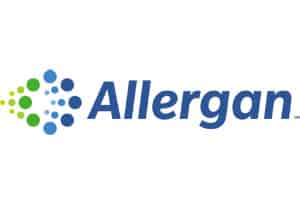
Allergan’s novel treatment for major depressive disorder (MDD) rapastinel has failed in three pivotal phase 3 studies.
The misfiring of rapastinel is a major blow for the company’s most important late-stage candidate, and is a clear contrast to J&J’s rival treatment Spravato (esketamine), which gained FDA approval earlier this week.
Analysts at Evaluate had forecast rapastinel to achieve sales of $505m by 2024, making it Allergan’s most promising pipeline drug, but these hopes now look all but dashed, and the company’s shares have dropped 2% in response to the news.
The failure adds to Allergan’s woes, with activist shareholders recently bemoaning the company’s ‘chronic underperformance’ and demanding that the CEO and chairman roles, both currently held by Brent Saunders, are split out.
Against this background, a lot had been riding on the success of rapastinel, but the results from the three studies were unequivocally bad news.
The treatment (administered by weekly injection) was used in three acute studies (RAP-MD-01,-02,-03) as an adjunct to antidepressant therapy (ADT) in MDD patients who only had a partial response to this therapy.
However, all three studies showed the drug performed no better than placebo on the primary and key secondary endpoints – very different to phase 2 results which had suggested clear and rapid efficacy.
The drug was shown to be well tolerated without any signal of psychotomimetic side effects, a ‘clean’ profile that would give it the edge in conjunction with good efficacy, but the future now looks bleak for the molecule.
Allergan says an interim analysis of rapastinel as a relapse prevention therapy (RAP-MD-04) suggests the primary and key secondary endpoints will not be met in this study either.

David Nicholson
“We are deeply disappointed with these results, and they are a vivid reminder that drug development is extremely challenging, especially in mental health, said David Nicholson, chief research and development officer at Allergan.
He said the company remained committed to developing new medicines to meet the globally growing incidence of mental illnesses.
In addition to the adjunctive MDD trials, Allergan is conducting a global phase 3 monotherapy programme evaluating rapastinel compared to placebo, and a phase 2 proof of concept suicidality study evaluating it compared to placebo in addition to standard of care (SOC) of patients with MDD at imminent risk of suicide.
The company says it will now evaluate the impact of the data from the adjunct use trials on these programmes, and expects to make a decision on whether or not to continue with these trials later this year.
The news adds to existing headwinds for the firm. It must write-down $1.6 bn in relation to its chin-fat injection Kybella, has called off the sale of its women’s health unit and face competitive threats to top sellers such as Botox.




